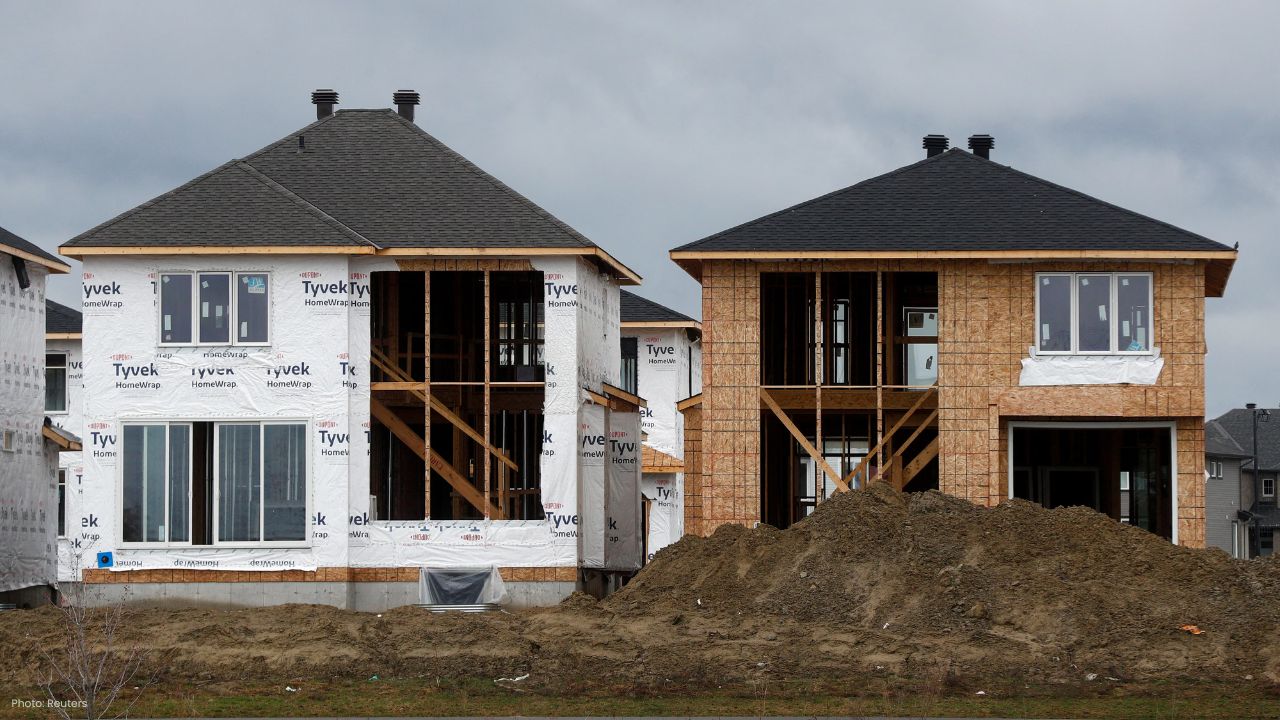
Pakistan Women Face Tough Challenge Against Experi
Pakistan’s women’s team braces for World Cup clash with Australia, facing experienced opponents on u

Canada’s housing agency warns that a growing number of homeowners may struggle with mortgage payments as millions of loans come up for renewal this year and next. The Canada Mortgage and Housing Corporation (CMHC) says it is closely monitoring the situation.
“My overall expectation is that delinquencies and arrears will be trending upwards,” said Aled ab Iorwerth, deputy chief economist at CMHC. He highlighted the potential impact of higher interest rates on household finances.
“There will be a bit of downward pressure on the economy as people cope with these higher interest rates on mortgage renewal,” he added.
Mortgage Delinquencies Remain Low, but Rising
Canada’s mortgage delinquency rate has historically been low. In 2022, the rate fell to 0.14 percent, the lowest in years. It slightly increased to 0.22 percent in the second quarter of 2025. For context, delinquency rates were as high as 0.38 percent in 2012.
While overall levels remain low, CMHC has observed a notable increase in some regions, signaling potential financial stress for certain homeowners.
Higher Rates Driving Renewals Concerns
Ab Iorwerth estimates that interest rates for homes and condos are roughly three percentage points higher than five years ago. He did not provide exact figures for how much monthly payments could rise, but emphasized that the difference is significant for many borrowers.
Many Canadians purchased homes during the pandemic in 2020, attracted by historically low rates. These homeowners typically signed five-year fixed-rate mortgages, which are now up for renewal at higher rates, raising concerns about affordability.
Millions of Mortgages Set for Renewal
An estimated two million mortgages across Canada will come up for renewal in 2025 and 2026. Approximately 60 percent of outstanding mortgages are expected to carry higher payments during this period, according to a Bank of Canada analysis.
The rise in renewal payments could coincide with broader economic pressures, including high living costs, slower business investment, and uncertainty from international trade factors.
Regional Disparities in Impact
Toronto condo owners are among the most vulnerable, according to CMHC. Condos were a popular choice during the pandemic due to their relative affordability. Many of these buyers now face higher mortgage payments, compounded by high local unemployment.
Shael Weinreb, CEO of The Home Equity Partners in Toronto, notes that households are increasingly relying on credit lines and credit cards to manage living costs, reflecting early signs of financial strain.
Other major cities, including Vancouver and Montreal, may experience similar pressures, though less severe than Toronto. Provinces such as Alberta, with stronger economic conditions, are better positioned to absorb rising delinquencies.
Potential Housing Market Consequences
The CMHC warns that these pressures could affect the broader housing market. Developers and builders may hesitate to start new projects amid uncertainty, which could exacerbate housing shortages and push property prices higher in the coming years.
“Developers will be really reluctant to put shovels in the ground and build more housing,” said Ab Iorwerth. “A shortage of housing could lead to rising prices in a few years.”
Expert Analysis on Systemic Risk
Despite concerns, some economists note that higher mortgage renewals are unlikely to shock the financial system. Maria Solovieva, an economist at TD Bank, points out that total mortgage payments have declined in recent quarters due to lower overall interest costs in the past. Mortgage interest payments, for instance, fell by an average of 1.7 percent in the final two quarters of 2024.
Nonetheless, rising delinquencies in high-cost areas and among condo owners suggest a need for close monitoring and potential policy adjustments to support household finances.
As millions of Canadians face mortgage renewals at higher rates, financial pressures are expected to rise, particularly in major urban centers like Toronto. While the system remains stable, monitoring delinquencies and supporting homeowners may become increasingly critical to maintaining housing market stability.